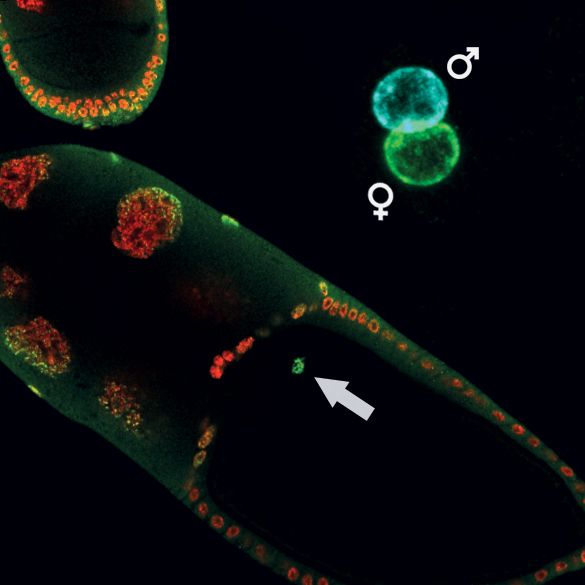We are more than the sum of our genes. Epigenetic mechanisms modulated by environmental cues such as diet, disease or lifestyle take a major role in regulating the DNA by switching genes on and off. It has been long debated if epigenetic modifications accumulated throughout the entire life can cross the border of generations and be inherited to children or even grand children. Now researchers from the Max Planck Institute of Immunobiology and Epigenetics in Freiburg show robust evidence that not only the inherited DNA itself but also the inherited epigenetic instructions contribute in regulating gene expression in the offspring. Moreover, the new insights by the Lab of Nicola Iovino describe for the first time biological consequences of this inherited information. The study proves that mother’s epigenetic memory is essential for the development and survival of the new generation.
Humans have than 250 different cell types. They all contain the exact same DNA bases in exactly the same order; however, liver or nerve cells look very different and have different skills. What makes the difference is a process called epigenetics. Epigenetic modifications label specific regions of the DNA to attract or keep away proteins that activate genes. Thus, these modifications create, step by step, the typical patterns of active and inactive DNA sequences for each cell type. Moreover, contrary to the fixed sequence of ‘letters’ in DNA, epigenetic marks can also change throughout life and in responses to environment or lifestyle. For example, smoking changes the epigenetic makeup of lung cells, eventually leading to cancer. Other influences of external stimuli like stress, disease or diet are also supposed to be stored in the epigenetic memory of cells.
It has long been thought that these epigenetic modifications never cross the border of generations. Scientists assumed that epigenetic memory accumulated throughout life is entirely cleared during the development of sperms and egg cells. Just recently a handful of studies stirred the scientific community by showing that epigenetic marks indeed can be transmitted over generations, but exactly how, and what effects these genetic modifications have in the offspring is not yet understood. “We saw indications of intergenerational inheritance of epigenetic information since the rise of the epigenetics in the early nineties. For instance, epidemiological studies revealed a striking correlation between the food supply of grandfathers and an increased risk of diabetes and cardiovascular disease in their grandchildren.
